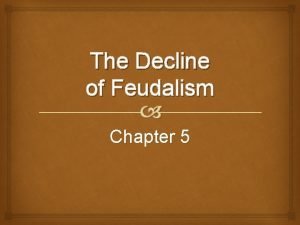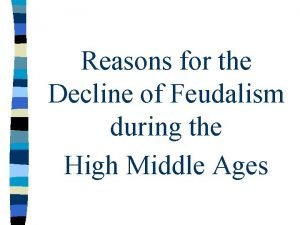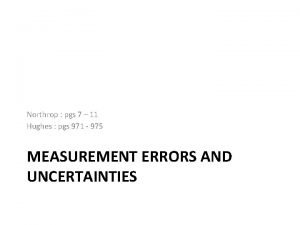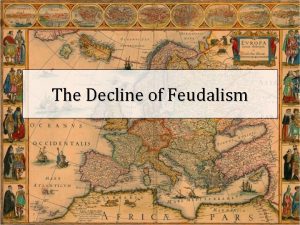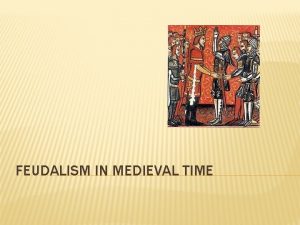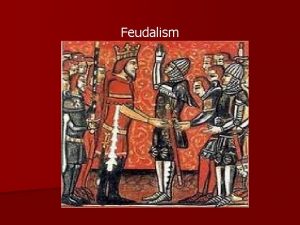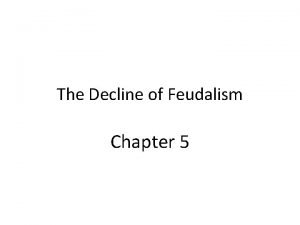The Decline of Feudalism Chapter 5 pgs 53










- Slides: 10

The Decline of Feudalism Chapter 5, pgs. 53 -59

King John was ruler of England in 1199. He lost nobles’s land, taxed his people heavily, and arrested people at his will. In June 1215, King John was forced to put his seal on the Magna Carta, or Great Charter.

Magna Carta (1215) The Magna Carta was a written agreement that limited the English king’s power and strengthened the rights of the nobles. King would meet with nobles before imposing special taxes. Accused people of crimes couldn’t be put in jail without consent of the courts.

Importance The signing of the Magna Carta by King John meant that now the king did not have all the power. Some power was shifted to common people, which established the idea of rights and liberties that even the king cannot violate.

The Bubonic Plague From 1347 to 1351, the Bubonic Plague, or Black Death, killed roughly 24 million people in Europe. This equaled one out of every three people. People who caught the plague suffered from fevers, vomiting, sever coughing, and egg-sized swelling or bumps on their throats.

How it Spread The bacteria that caused the disease was spread by fleas. Fleas were carried around by rats. Rats spread fleas to humans. 1 out of every 3 humans died.


Importance Because so many people had died, the few remaining workers could demand more money and more rights. After the bubonic plague, the need for workers to rebuild Europe led to a shift in power from feudal lords to common people.

The Hundred Years’ War was a series of wars fought by France and England between 1337 and 1453. Basically, these were wars fought over who owned whose land. New weapons, such as the crossbow and longbow, would revolutionize the way future wars would be fought.

Importance The Hundred Years’ War brought a rise in national feeling in both England France. It also reduced the importance of nobles and knights on the battlefield.
